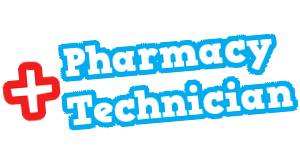What Does an Oncology Pharmacy Technician Do?
An oncology pharmacy technician is different from your ordinary pharmacy technician that works at your local pharmacy in that they specially deal with cancer drugs. Also called chemotherapy pharmacy technicians, they are trained to dispense drugs that kill cancer cells in cancer patients.
They work alongside doctors, nurses and pharmacists as part of a health care team dedicated to helping patients with cancer live more comfortable lives. They work directly with cancer drugs, which can be taken orally or intravenously. Because there is so much involved with dispensing cancer drugs, oncology pharmacy technicians are needed to assist pharmacists.
Oncology Pharmacy Technician Duties
Oncology pharmacy technicians work in hospitals and pharmacies in cancer centers. They follow doctors’ orders to ensure the medicine is dispensed accurately. They label bottles and jars and operate equipment. They assist pharmacists and physicians as needed. They are in charge of inventory, ordering medicine and supplies and reconciling invoices as necessary. They perform administrative tasks, such as filling out forms and updating patient records.
This requires computer skills, particularly with databases and the maintenance of electronic health records. Safety is critical with chemotherapy drugs, since there are risks involved with handling these types of drugs. Therefore, oncology pharmacy technicians must be trained in keeping the environment safe and sterile at all times.
Oncology pharmacy techs need several important skills in order to be successful. They must be able to listen and follow directions well. A solid knowledge of medical terminology is preferred.
These health professionals must also be very strong in math. They must be able to add and subtract, use ratios and work with fractions. Correct math calculations are extremely important, since calculating the incorrect dosage can cause a patient to receive too much or too little of an important medication.
Chemotherapy medications help cancer patients to survive, so an incorrect dosage can cause serious side effects or even death.
Oncology Pharmacy Technician Training
The training needed for oncology pharmacy technicians can be acquired through a local community college. Many offer one-year programs that teach students everything they need in order to become certified.
There are also specialized courses that one can take as well.
These courses focus on safety and other aspects that pertain solely to oncology pharmacy technicians.
The National Pharmacy Technician Association (NPTA) also offers a chemotherapy course designed especially for oncology pharmacy technicians.
This course focuses on the safe handling of chemotherapy drugs. This home-based course consists of 10 modules reading assignments and exams. Some medical training facilities and career colleges offer courses and complete programs as well. Many hospitals and cancer centers offer on-the-job training for new employees.
Once the proper education has been obtained, the next step is to pass a written exam. This test, called the Pharmacy Technician Certification Exam (PTCE), is administered by the Institute for the Certification of Pharmacy Technicians and the PTCE Board. This multiple-choice exam must be taken every two years. It covers topics such as administrative duties, inventory control and pharmacist assistance.
Oncology Pharmacy Technician Salary
Chemo techs can expect to earn an average salary of $32,000 per year. This can vary greatly, depending on experience, location and company.
Metropolitan areas tend to pay more than jobs in rural areas. Plus, more experience typically equates to more money, so a seasoned technician with 10+ years of experience is likely to make much more than a recent graduate.
The employment outlook is good and it is probable that the demand for these types of technicians will rise in the coming years. With the baby boomer population aging and cancer becoming more common, the need for chemotherapy drugs will steadily increase. Plus, new technologies in cancer drugs will increase the demand.
